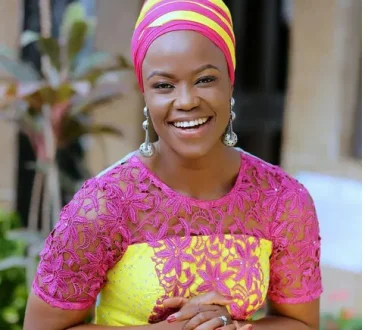The Breaking of Tradition: First Church’s Painful Yet Faithful Departure from the CRC

For nearly 168 years, First Christian Reformed Church has been a beacon of faith, resilience, and leadership within the Christian Reformed Church (CRC) in Grand Rapids, Michigan. A congregation that has witnessed generations of believers, shaped theological discourse, and championed social justice, First Church now finds itself at the heart of a historic split that has shaken the very foundations of the CRC.

In a denomination once unified by its commitment to Calvinist doctrine and the authority of Scripture, First Church is taking a bold and painful step—choosing to part ways over the CRC’s stance on LGBTQ inclusion. Their decision, voted in favor by an overwhelming majority of 143–16, underscores a deepening divide in contemporary Christianity over how the church should interpret and apply Biblical teachings in an evolving cultural landscape.
A History of Leadership and Inclusion
First Church has long been a trailblazer within the CRC. As one of the first to advocate for the full inclusion of women in church leadership, it has consistently pushed boundaries while remaining rooted in its commitment to the Reformed faith. From its strong stance on ethnic diversity and justice to its willingness to engage in rigorous theological debate, First Church has sought to reflect Christ’s love in a world filled with divisions.
But the church’s forward-thinking approach has not always aligned with the CRC’s broader consensus. When conversations about sexuality began to intensify in 2018, First Church hoped to find a middle ground—a way to navigate doctrinal differences without severing ties. Their ultimate decision to allow full participation of LGBTQ members without explicitly affirming same-sex marriage was seen as an attempt at inclusivity within their theological framework.
A Painful Fracture in the Body of Christ
The CRC’s 2022 synod vote to codify its opposition to homosexual relationships sent a clear message: all congregations must align with traditional interpretations of biblical morality. By 2024, the CRC reinforced this stance, leaving churches like First Church with an ultimatum—conform or separate. For a congregation that had invested so much into fostering theological discussion and unity, the realization that denominational reconciliation was out of reach was a heartbreaking moment.
Despite efforts to seek a third way, the weight of theological rigidity proved too much. The same church that once led in progressive conversations within the CRC now found itself at odds with the very institution it helped shape.
The Larger Picture: The Church’s Struggle with Change
First Church’s departure is not an isolated incident but part of a larger wave of denominational fractures in American Christianity. From the Episcopal Church USA to the United Methodist Church, major Christian institutions have found themselves grappling with the intersection of faith and evolving cultural understandings of gender and sexuality. While many traditionalist congregations have historically chosen to leave progressive-leaning denominations, the CRC’s situation is unique—it is the progressive churches who feel forced to step away.
For many in the congregation, this transition is filled with grief. Decades of history, friendships, and ministry partnerships have been deeply affected by this split. The pain is not only felt by those departing but also by the churches remaining within the CRC. The severing of these bonds, as Pastor Darrin Compagner of Shawnee Park CRC describes, feels like Velcro pulling apart—painful and deeply personal.
What Comes Next for First Church?
The final vote to formalize First Church’s disaffiliation will take place on March 2, 2025. As they prepare to leave, the congregation is considering multiple options for their future affiliation. Whether they will join the Presbyterian Church (USA), the United Church of Christ, or even return to the Reformed Church in America—the very denomination they left in 1857—remains uncertain.
But one thing is clear: this decision is not one of mere sentimentality, but of conviction. First Church is not simply choosing to leave; it is choosing to follow its understanding of Christ’s radical love.
A Night of Remembering: Honoring 168 Years of Faith
In late March, the congregation will gather for a Night of Remembering, an event dedicated to reflecting on their history within the CRC. It will be a time of storytelling, healing, and embracing the new journey ahead. While the church’s future remains unwritten, its mission remains steadfast—to be a place where faith and love converge, and where all are welcomed in the name of Christ.
As the pages of history turn, First Church stands as both a testament to the endurance of faith and a reminder that even the strongest institutions must wrestle with the ever-changing landscapes of belief and belonging. And so, with heavy yet hopeful hearts, they step forward into the unknown—guided, as always, by the light of Christ.




